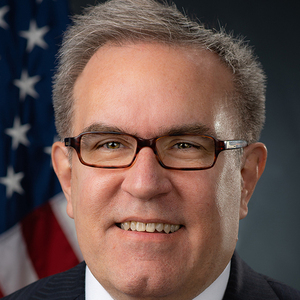Wheeler addresses SREs, RVO reallocation during recent hearings

April 4, 2019
BY Erin Voegele
U.S. EPA Administrator Andrew Wheeler told federal lawmakers in early April that it would be difficult for the agency to reallocate biofuel volumes waived by small refinery exemptions (SREs), even if Congress provided a legislative mechanism to do so. He also said the agency aims to address compliance year 2018 SREs in a timely manner, but cautioned EPA staff working on issues related to the Renewable Fuel Standard have several competing priorities.
Wheeler made these statements and addressed various issues related to the RFS during two recent appearances before federal lawmakers.
On April 3, Wheeler appeared before the Senate Committee on Appropriations’ Subcommittee on Interior, Environment, and Related Agencies, where he delivered testimony on the EPA’s fiscal year 2020 funding request.
During that hearing, Sen. Roy Blunt, R-Missouri, questioned Wheeler on the EPA’s actions regarding SREs and the potential reallocation of waived renewable volume obligations (RVOs).
Advertisement
Advertisement
Wheeler explained that the small refinery exemption program is the agency’s process for providing waivers of RFS requirements to small refineries. The program, he said, which decreases the gallons for the RFS program, is set up by statute.
“Previous administrations did not implement the program,” he said. “The EPA was sued three times and lost three times. So, now we have three court orders on how to run the program, in addition to the statute, as well as appropriations language.”
Wheeler explained that SRE requests are submitted after annual renewable volume obligations (RVOs) are set by EPA. “We don’t have a process to go back and readjust the RVO,” he said. “If we were to try to do that, it would probably send more small refiners into financial hardship based upon the number of gallons that would be spread out over fewer refineries.” He also stressed the EPA does “not have a mechanism” that would allow it to reallocate waived volumes.
In response, Blunt asked Wheeler if the EPA needs to develop such a mechanism, if Congress needs to give the agency one, or if it would be unreasonable to have a mechanism to reallocate volumes.
Advertisement
Advertisement
“I think we would need to be given that mechanism, but I also think it would be very hard to try to implement something like that after the fact,” Wheeler said.
Wheeler also briefly discussed the 39 SRE applications that are currently pending for compliance year 2018. He said the agency hasn’t actually received those applications yet. “The way the process works is that they apply to the Department of Energy,” he said. “Department of Energy reviews the small refinery exemption applications. They have given us a list of the small refineries that have applied this year, but they haven’t given us their underlying rationale and recommendations yet for those refineries. As soon as we receive those, we then process them.”
Wheeler also addressed questions regarding SREs during a hearing held by the House Committee on Appropriations’ Subcommittee on Interior, Environment, and Related Agencies April 2. That hearing was also held to address the EPA’s budget request for fiscal year 2020.
During the April 2 hearing, Chris Steward, R-Utah, asked Wheeler about EPA’s timeline for processing compliance year 2018 SRE applications. Wheeler explained the SRE application process and said the agency is expecting the DOE to deliver the SRE applications “any day now” and said the EPA will process them “on a timely basis.”
While Wheeler said the EPA will try to comply with a statutory 90-day deadline with regard to the SRE applications, he stressed that the same staff members who process SRE applications are also the staff members that are working several other RFS-related issues. This includes the agency’s pending E15/RIN market reform rulemaking, the 2020 RVO rulemaking, the reset rule, and others. He said the staff has five or six different priorities that could make it hard to process all the SREs within 90 days, but noted the agency will process SRE applications on a rolling basis.
Related Stories
On April 23, the Advanced Biofuels Association (ABFA) met with officials in the U.S. EPA to convey the vital importance of domestic biofuel production to the Trump-Vance administration’s energy dominance policy agenda.
Aemetis Inc. on April 23 announced that its subsidiary in India, Universal Biofuels, has been working with the U.S. government to support the success of American interests in India. U.S. Consul General Jennifer Larson recently toured the facility.
CARB on April 4 released a third set of proposed changes to the state’s LCFS. More than 80 public comments were filed ahead of an April 21 deadline, including those filed by representatives of the ethanol, biobased diesel and biogas industries.
The Oregon Department of Environmental Quality on April 18 proposed to delay the 2024 annual report deadline for the state’s Clean Fuels Program due to a cyberattack and extended outage of the Oregon Fuels Reporting System.
The Washington Senate on April 15 voted 25 to 23 in favor of legislation that aims to update the state’s Clean Fuels Standard, setting more ambitious carbon reduction goals that would require a 45% reduction in greenhouse gas (GHG) emissions by 2038.
Upcoming Events










